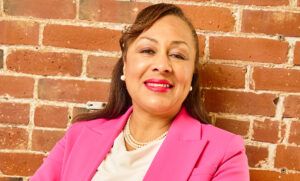Letter from the President
Dear Alumni and Friends of the University,
For 150 years now, a Worcester State education has helped individuals scale the ladders of economic success and social mobility.
When founded in 1874 as the Worcester Normal School, we offered a no-cost, two-year program for those seeking to teach in the growing public schools. Teaching was an attractive alternative to factory or domestic service work for young women who sought employment rather than marriage as their path to economic self-sufficiency, and we helped many achieve just that. Among them was Jennie Cora Clough, class of 1878, our first Black student as well as the first Black teacher in Worcester.
By 1932, after becoming Worcester State Teachers College, we phased out two- and three-year diplomas. With our four-year education degree costing 1 to 2 percent of an average teacher’s salary, many Massachusetts residents of lesser means took advantage of the opportunity to learn and then earn, whether they taught or not. Even then, our students understood that a bachelor’s degree is a transformative credential that opens doors.
Among those who parlayed an education degree into substantial financial success was Framingham resident James P. Sheehan ’55, USMC (ret.). With a scholarship to help him afford his $75-a-year tuition, he reportedly hitchhiked the 26 miles from home to campus. He entered the Marines upon graduation. During 22 years in the service, he rose to the rank of lieutenant colonel, and, after retiring, he launched a successful career as a venture capitalist. He is our university’s single largest donor, with a residence hall, the honors program, and our annual merit scholarships all bearing his name.
By the 1970s, thousands of young people pursued degrees at Worcester State College every year. Gail Carberry ’70, Ed.D., worked her way through Worcester State, later earning master’s and doctoral degrees from UMass Amherst. She served as president of Quinsigamond Community College from 2006 until her retirement in 2017.
Worcester State has continued to be the college of choice for such hardworking students. Today, half of our degree-seeking undergraduates are Pell eligible and half are first generation. And we continue to invest in their success. With our recently announced ValuePlus promise, students from families earning $75,000 or less can likely attend for free.
We also have staff and programs dedicated to their success. About 50 years ago, for example, we established the Office of Multicultural Affairs. Graduates from then through today credit OMA for helping them thrive, among them Manasseh Konadu ’19, now an assistant attorney general for the State of Illinois, and Tayla Weeden ’23, who has worked at Boston Medical Center and is now a staff associate in Worcester State’s Office of Multicultural Affairs.
We take pride in helping our students get ahead—and we do it exceptionally well.
CollegeNet’s Social Mobility Index ranks Worcester State University in the top 15 percent of colleges nationwide. Lake Ellie may not be large enough to have rising tides—but Worcester State itself lifts many boats!
Sincerely,
Barry M. Maloney
President



